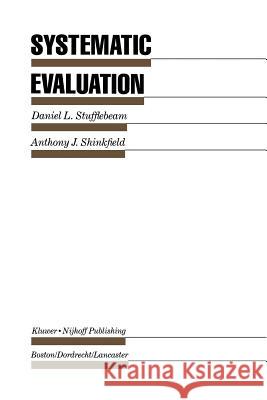Systematic Evaluation: A Self-Instructional Guide to Theory and Practice » książka
topmenu
Systematic Evaluation: A Self-Instructional Guide to Theory and Practice
ISBN-13: 9789401089951 / Angielski / Miękka / 2011 / 368 str.
Kategorie:
Kategorie BISAC:
Wydawca:
Springer
Seria wydawnicza:
Język:
Angielski
ISBN-13:
9789401089951
Rok wydania:
2011
Wydanie:
1985
Numer serii:
000053089
Ilość stron:
368
Waga:
0.49 kg
Wymiary:
22.86 x 15.24 x 1.93
Oprawa:
Miękka
Wolumenów:
01











